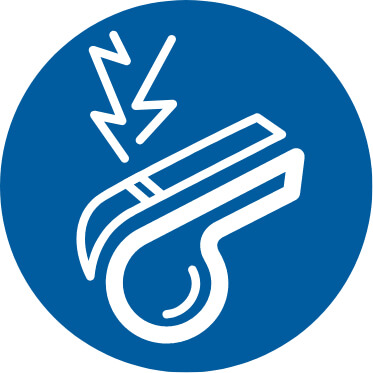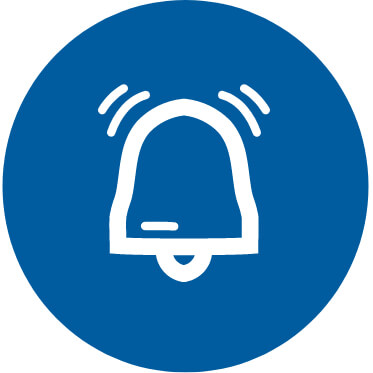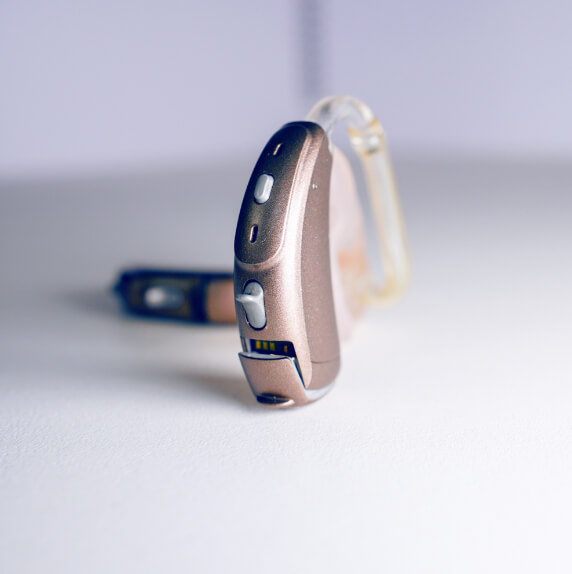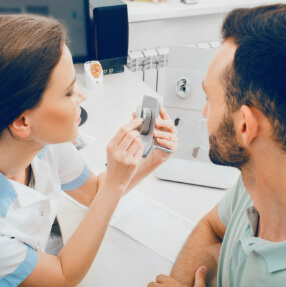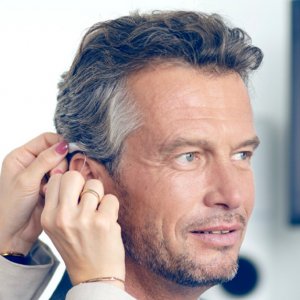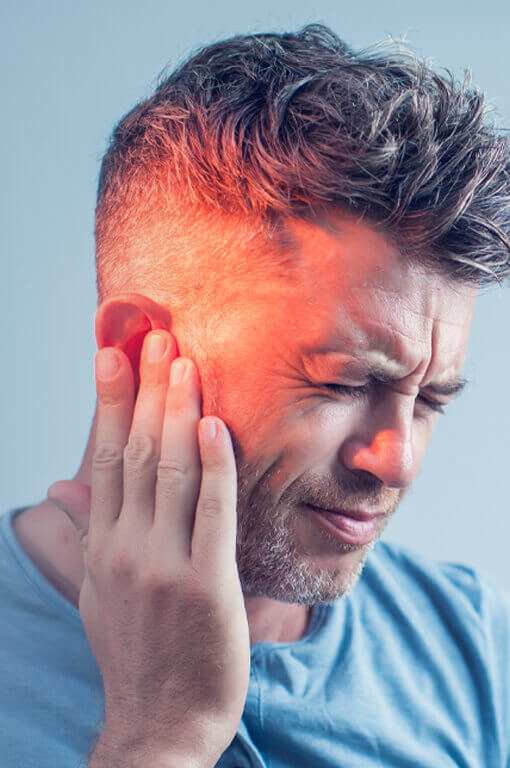
Tinnitus
Everything you need to know about symptoms, causes and treatment
Tinnitus (also “tinnitus aurium”; Latin for “ringing ears”) affects around 15 percent of the world’s population. While there is no cure or over-the-counter medication for tinnitus, there are several things you can do to ease symptoms.
In this article, we are going to give you more information about tinnitus, its characteristics, causes and treatment options.
Table of Contents
- What is tinnitus?
- Ringing in the ears
- What causes tinnitus?
- Tinnitus Masker
- Tinnitus therapy
- Tinnitus in old age
What exactly is tinnitus?
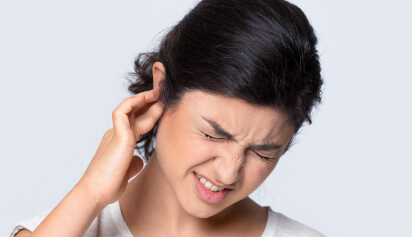
Researchers are not 100 percent sure exactly what tinnitus is. However, they do know that it has a high correlation with hearing loss. Tinnitus is basically described as ringing, buzzing, or hissing in the ears. Chronic tinnitus occurs for more than three months in ten to twenty percent of those affected. The most common cases are seen in patients over 40 years of age. Nevertheless, people of any age are prone to annoying and persistent noises in their ears.
Symptoms can vary from patient to patient. In mild cases, the ringing may feel like a minor disturbance that is more noticeable in quiet environments. However, tinnitus symptoms can sometimes be so loud that they interfere with everyday activities.
Tinnitus causes:
What can trigger tinnitus?
Hearing care professionals state that tinnitus is due to damage to the outer hair cells of the cochlea (the part of the inner ear that looks like a snail shell). The question is: how are these hair cells damaged? The reasons can be varied, the two most likely reasons being trauma and long-term degradation.
Tinnitus & stress
What makes tinnitus go away?
Stress is one of the main reasons that can trigger tinnitus. When you’re stressed, you tend to hear the ringing sound much louder than it actually is. For this reason, active relaxation can already help to reduce the annoying ringing in your ears. Try to engage in activities that will help you relieve stress quickly and effectively. For example, go for a walk, meditate, or try breathing exercises.
Tinnitus-Masker
What is a masker for tinnitus?
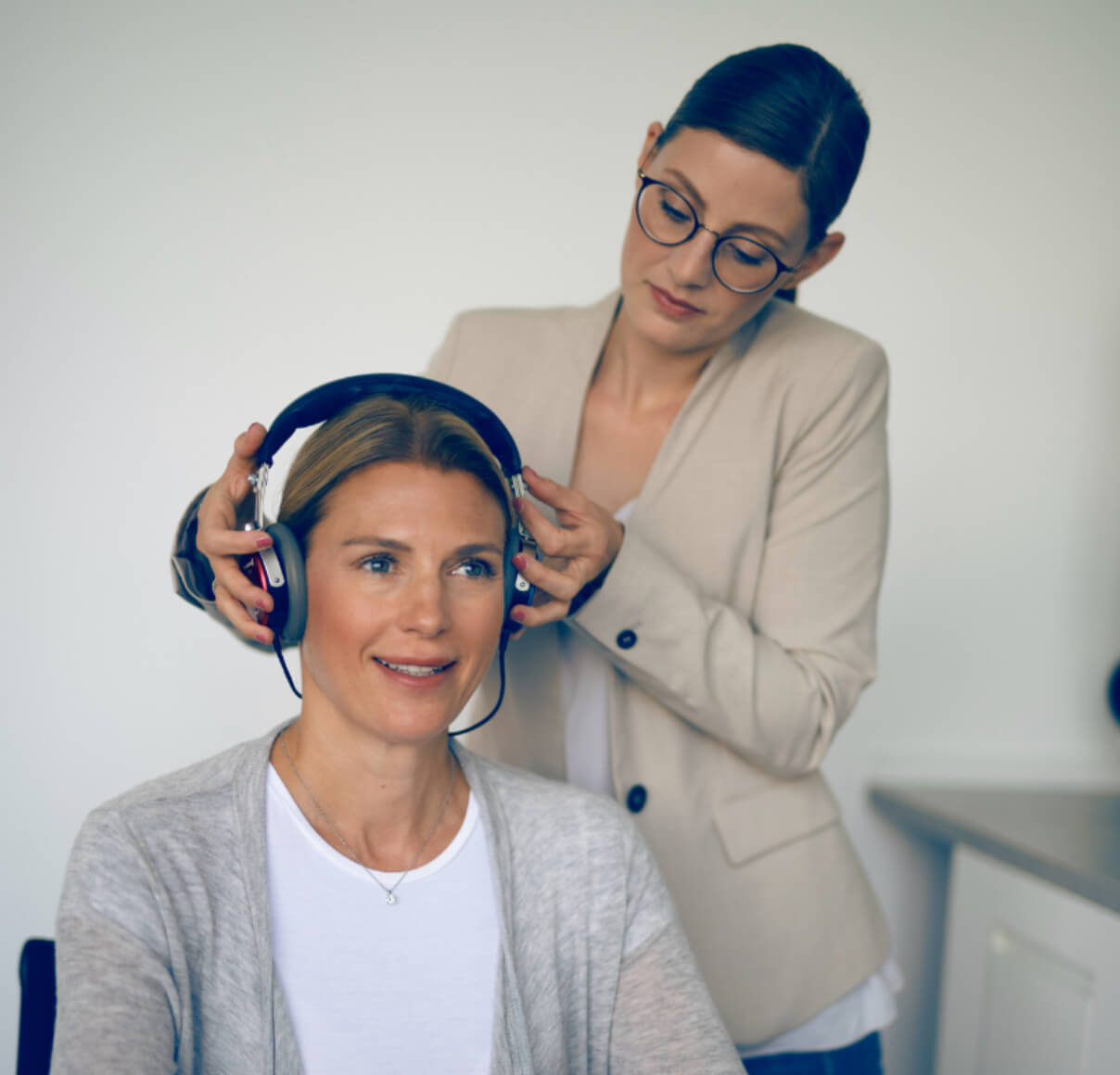
More than half of the people who have tinnitus also have hearing loss. It is precisely for these cases that modern hearing aids come equipped with a tinnitus function which has proven itself effective at dealing with its symptoms. Not only do these help wearers hear better, but they can also help relieve tinnitus. The tinnitus function in a hearing aid generates a noise that is perceived as pleasant by the hearing aid wearer and which is quieter than the tinnitus itself. This intelligent technology “superimposes” an annoying beeping in the ear so that after a while both the tinnitus and the noise are filtered out by the brain and are no longer perceived. Hearing aids with tinnitus functionality can also help if you have chronic tinnitus without hearing loss.
Tinnitus trauma and noise
What are the causes of tinnitus?
Trauma can be a single external event, such as an injury or constant exposure to loud noises. Common causes are gunshots and explosions. People who work with noisy machines are at a higher risk of developing ringing in the ears.
Similar to trauma, there can be long-term hearing deterioration from noise. The difference, however, is that the sounds perceived are not as strong as trauma over the course of a lifetime. For example, going to a lot of loud concerts without earplugs can affect your hearing. In addition, it is not uncommon for you to develop age-related hearing loss as you get older. As already explained, numerous studies link tinnitus with hearing loss. However, if you are younger than 60 and do not wear appropriate hearing protection in certain situations, you run the risk of hearing loss and ringing in the ears sooner than later.
Tinnitus therapy
How do you treat tinnitus?
Depending on the causes, the treatment and therapy of tinnitus can be done in different ways – including acoustic stimulation, behavioral approaches, medicinal methods, magnetic and electrical brain stimulation or physiotherapy.
In acute cases, treatment is usually carried out with vitamin E supplements, magnesium, glucocorticoids such as B. cortisone, intravenous local anesthetics such as procaine and active ingredients that promote blood circulation (e.g. pentoxifylline). Depending on the cause of the tinnitus, treatment and therapy can be medication in tablet form or as an infusion (intravenous).
Tinnitus in old age
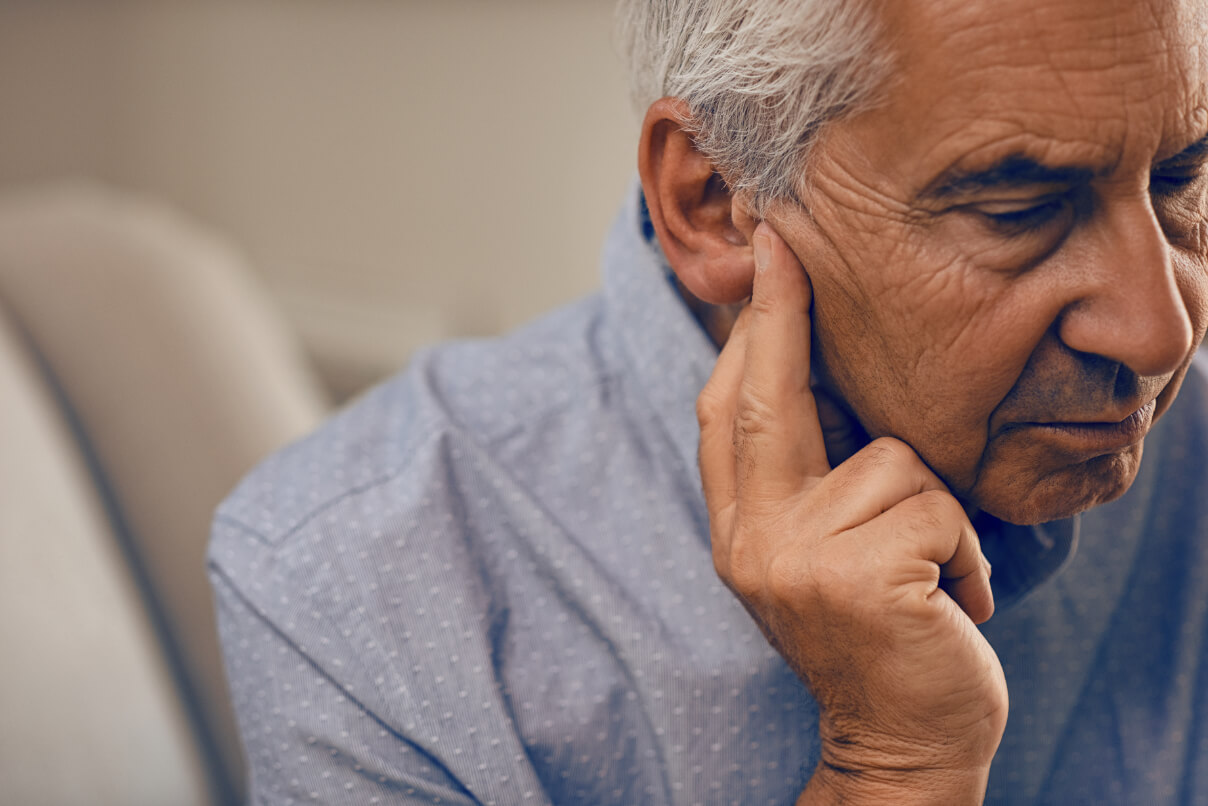
Although children can also have tinnitus, the majority of people with tinnitus are 50 years and older. In addition, tinnitus is diagnosed more often in women than in men. However, the last few years have shown that tinnitus is also becoming more common in adolescents and young adults. This increase in younger tinnitus patients is mainly due to the increasing contact with noise from concerts and music consumption.


